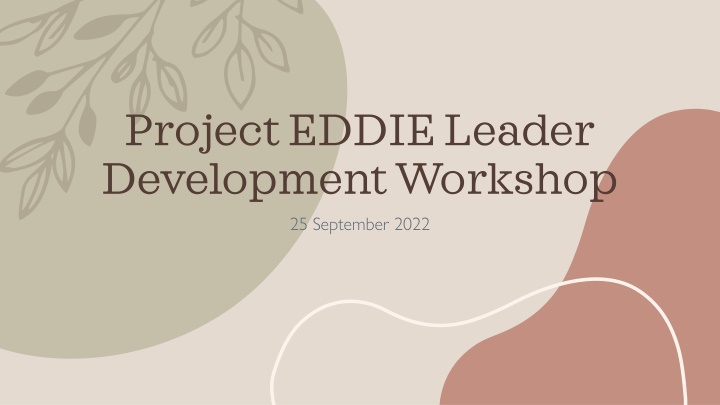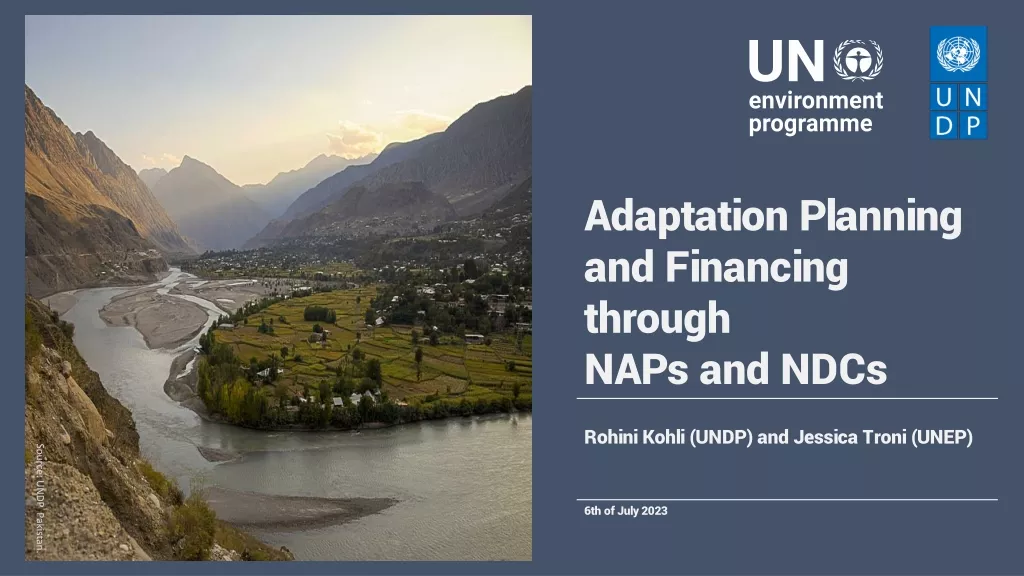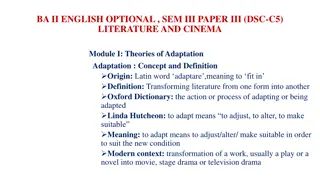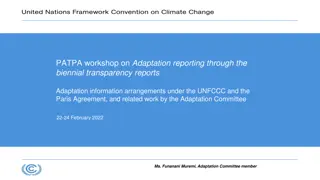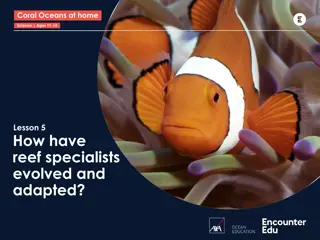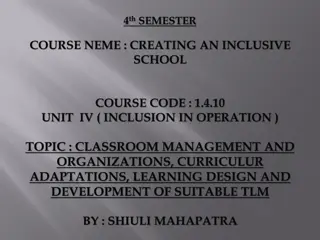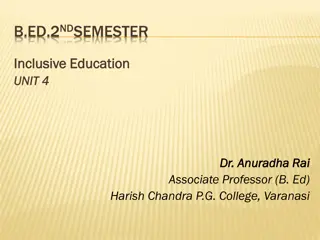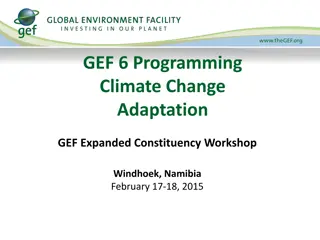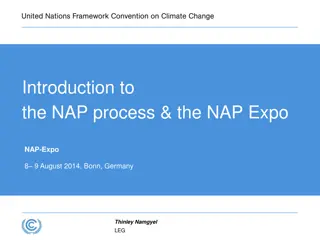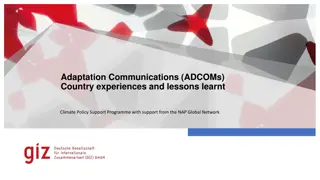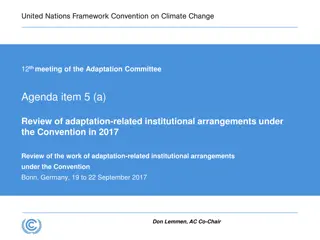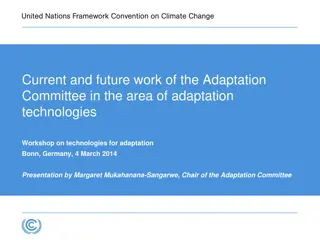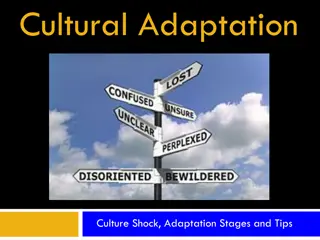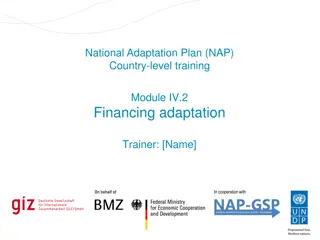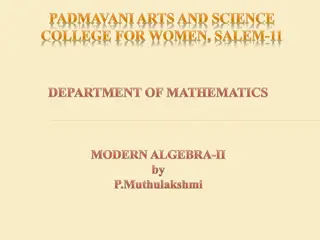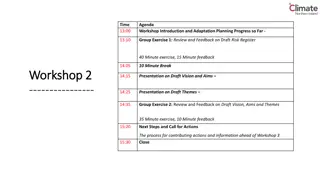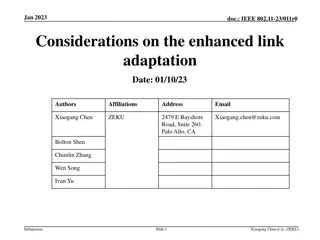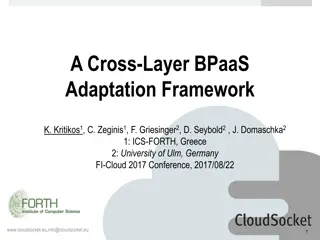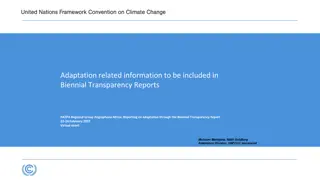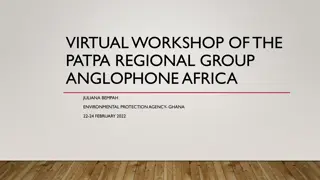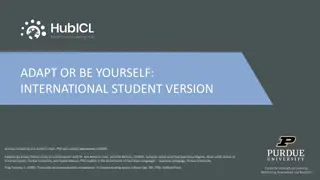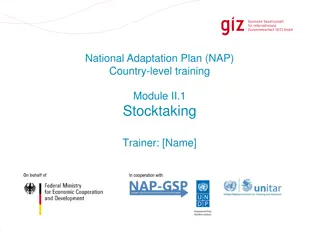Strategies for Inclusive Learning Spaces & Workshop Adaptation
Explore effective strategies for fostering inclusive, equitable learning spaces and learn how to adapt these strategies to your workshops across various STEM disciplines. Gain insights from literature on learner-centered approaches, relationship cultivation, and active learning methods.
Uploaded on Mar 15, 2025 | 1 Views
Download Presentation

Please find below an Image/Link to download the presentation.
The content on the website is provided AS IS for your information and personal use only. It may not be sold, licensed, or shared on other websites without obtaining consent from the author.If you encounter any issues during the download, it is possible that the publisher has removed the file from their server.
You are allowed to download the files provided on this website for personal or commercial use, subject to the condition that they are used lawfully. All files are the property of their respective owners.
The content on the website is provided AS IS for your information and personal use only. It may not be sold, licensed, or shared on other websites without obtaining consent from the author.
E N D
Presentation Transcript
Project EDDIE Leader Development Workshop 25 September 2022
How do we foster inclusive, equitable learning spaces?
Lessons from the literature Position learners as knowledge- generators Validate learners scientific identities Foster sense of belonging Allow learners to make mistakes Honor and leverage learners funds of knowledge. Promote the use of learners critical lens to solve societal problems Value learners lived experiences as evidence Cultivate relationships Use active learning and group work
How can we adapt these strategies to our workshops? 4
References for Inclusive & Equitable STEM Instruction Kolonich, A., Richmond, G., & Krajcik, J. (2018). Reframing Inclusive Science Instruction to Support Teachers in Promoting Equitable Three-Dimensional Science Classrooms. Journal of Science Teacher Education, 29(8), 693 711. https://doi.org/10.1080/1046560X.2018.1500418 Thomson, A., Palm n, R., Reidl, S., Barnard, S., Beranek, S., Dainty, A. R. J., & Hassan, T. M. (2022). Fostering collaborative approaches to gender equality interventions in higher education and research: The case of transnational and multi- institutional communities of practice. Journal of Gender Studies, 31(1), 36 54. https://doi.org/10.1080/09589236.2021.1935804 Reiland, S., Palm n, R., & Kamlade, L. Disciplinary Communities of Practice for a greater gender equality in physics & life sciences. In A Community of Practice Approach to Improving Gender Equality in Research (pp. 118-132). Routledge. White, K. N., Vincent-Layton, K., & Villarreal, B. (2021). Equitable and inclusive practices designed to reduce equity gaps in undergraduate chemistry courses. Journal of Chemical Education, 98(2), 330 339. https://doi.org/10.1021/acs.jchemed.0c01094 20XX presentation title 5
Meeting Learners Where They Are 26 September 2022 Session 2 6
Heres the situation You are getting ready to lead an adoption workshop. Your primary goal is to get participants to adopt at least one EDDIE module by integrating it into their course. Your participants are: A. Faculty members in your department/school/college B. New/incoming faculty at your institution who are from a variety of STEM units C. High school science and math teachers who want to team up and provide cross- curricular instruction D. College/university STEM faculty from a variety of institutions E. A group of social scientists at your institution who want to extend the EDDIE model into their courses 7
Discussion Questions What questions do you want to ask your participants prior to the workshop? How will you use this information to structure your workshop? Will you provide different pathways/options to achieve the goal of module adoption, and if so, what would they be? How do you want the physical space of the workshop to be set up for these learners, specifically? 8
References for Differentiated Instruction Au-Yong-Oliveira, M., Walter, C. E., & Mangiatordi, A. (2022, June). Seeking Differentiated Instruction in Higher Education: An Analysis of the Literature. In ECRM 2022 21st European Conference on Research Methods in Business and Management. Academic Conferences and publishing limited. Boelens, R., Voet, M., & De Wever, B. (2018). The design of blended learning in response to student diversity in higher education: Instructors views and use of differentiated instruction in blended learning. Computers & Education, 120, 197-212. Boothe, K. A., Lohmann, M. J., Donnell, K. A., & Hall, D. D. (2018). Applying the principles of universal design for learning (UDL) in the college classroom. Journal of Special Education Apprenticeship, 7(3), n3. Collins, E. (2018). Differentiated Instruction and Technology Integration in Higher Education. ProQuest LLC. Goddard, Y., & Kim, M. (2018). Examining connections between teacher perceptions of collaboration, differentiated instruction, and teacher efficacy. Teachers College Record, 120(1), 1-24. Nieminen, J. H., & Pesonen, H. V. (2019). Taking universal design back to its roots: Perspectives on accessibility and identity in undergraduate mathematics. Education Sciences, 10(1), 12. Sun, Y., & Xiao, L. (2021). Research trends and hotspots of differentiated instruction over the past two decades (2000-2020): A bibliometric analysis. Educational Studies, 1-17. 9
